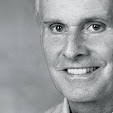How Spike Lee's Chiraq Can Help Chicago Deal with Youth Violence - Part I

So now along comes Spike Lee from the Big Apple to show the Second City how to deal with youth violence. OK by me. We need all the help we can get.
Here we have the worst youth violence problem of any big city in the country. And what are we doing to solve it?
Nothing. Fact is, we've never tried to solve it. We've tried to contain it, reduce it, ignore it, prevent it, stop it, and pray for it to go away. But never to solve it.
The end result? Youth violence today is "as bad as it's ever been, or worse", says a former senior Chicago FBI agent.
No neighborhood is safe from it. Not even the Miracle Mile.
Yet we accept it as a hard fact of Windy City life. Like our brutal winters.
Youth violence, however, is the kind of problem that if we don't solve it, it only gets worse. Much worse. Like Hitler and Stalin. And racism and poverty.
Hard lesson. Which America is learning the hard way this year. Look at Baltimore.
 |
| Chicago Sun-Times front page April 28 2015 |
So is Spike Lee really looking for solutions? Michael Sneed says Chiraq will "not only focus on violence but how it may be handled effectively".
That's good enough for me. But handling youth violence means dropping the defeatist mindset that says it will always be with us.
It also means facing some hard facts. Lee has reportedly told Mayor Emanuel that Black-on-Black violence has been "swept under a rug for far too long".
How long is too long? In 1992 Mayor Richard M. Daley said outright that "Chicago has lost two generations of young people to gangs and drugs". Young Black people, mostly.
Today, the total is three generations. And counting. Fast.
Yet our leaders assure us that Chicago is dealing effectively with youth violence.
Crime is down, they say. Homicides are half of what they were 20 years ago. And there were fewer homicides in 2014 than 2013. Slightly.
We're fooling ourselves. Gun violence is a poor measure of youth violence. A better measure is incarceration rates. In Chicago and nationwide, one out of every nine young Black men is in prison.
Then there's the size of drug-dealing street gangs. In 2012, the respected Chicago Crime Commission used Chicago Police Department statistics to estimate that Chicago has over 100,000 gang members, plus 15,000 more in the suburbs:
 |
| Cover Letter to the 2012 Edition of the Crime Commission's Gang Book |
How is Chicago handling these numbers? When it matters most, we're ignoring them. Youth violence was a non-issue in the final televised debates of this year's mayoral election.
Mayor Emanuel calls Spike Lee "a great artist". So will his Chiraq jolt us out of our 50-year nightmare of violence?
Will it shock us, amuse us, engross us, inform us, inspire us and then mobilize all Chicagoans to do what no American city has ever dared to do: address youth violence at its roots and as a city?
Already it's shocked our mayor. Google "Spike Lee Chiraq" and up come dozens of news items about his displeasure with Chiraq.
Other Chicagoans are OK with Chiraq. The Chicago Tribune calls it "appropriately provocative". Columnists Mary Mitchell, Neil Steinberg and John Kass give it a green light.
Yet others see it as an insult to Chicago. As a glorification of violence. And as a blow to the city's efforts to attract tourists. And jobs.
I disagree. I believe the best way for Chicago to attract jobs and tourists would be for the city to publicly commit to solving youth violence, once and for all.
If Spike Lee is thinking along these lines, he isn't thinking about Chicago alone.
He's thinking that Chicago - the FBI's 2013 Murder Capital of America - is ground zero for a crisis that afflicts virtually all American towns and cities.
He's thinking that youth violence has destroyed millions of American lives. Of all races.
And he's thinking that it's cost the nation trillions in lost wages, productivity and tax revenues. Each year, Chicago alone spends $3.5 billion dealing with it:
 |
| from the National Forum on Youth Violence Prevention: City of Chicago Youth Violence Prevention Plan (2011) (p 9) |
If so, look for Chiraq to bring out the best in Chicago's leaders and its citizens of all races.
And look for it to bring out the best in Chicago's media, which stands to profit as handsomely by promoting and advancing the search to end systemic problems like youth violence as they already profit by promoting and advancing to search to develop winning Chicago sports teams.
Then look for Spike Lee to win the Oscar that's always eluded him.
Labels: Ari Emanuel, Chicago Crime Commission, Chiraq, FBI, gangs, John Kass, Mary Mitchell, Mayor Daley, Mayor Emanuel, Michael Sneed, Murder Capital of America, Neil Steinberg, Spike Lee, youth violence





0 Comments:
Post a Comment
Subscribe to Post Comments [Atom]
<< Home